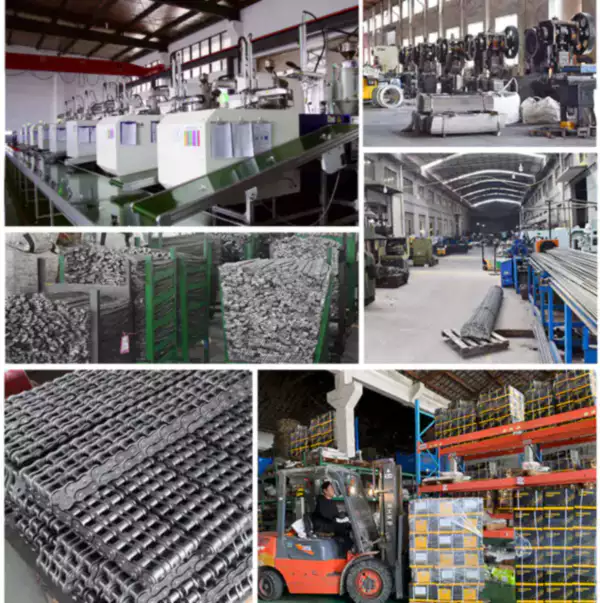Gripper chains are an essential component of many conveyor systems, providing the necessary grip to transport materials along the production line. However, to maintain their efficiency and longevity, it's crucial to properly lubricate these chains. In this article, we will explore the recommended lubricants for gripper chains and provide a purchasing guide to help you make the right choice.
Why Lubrication is Important for Gripper Chains
Before we delve into the types of lubricants recommended for gripper chains, let's take a moment to understand why lubrication is critical for the proper functioning of these chains. Gripper chains work by gripping the product and moving it along the conveyor line. Over time, the constant friction and wear and tear can cause the chains to break or malfunction. Lubrication helps to reduce this friction, minimizing wear and tear and increasing the lifespan of the chains.
Types of Lubricants for Gripper Chains
Now that we understand the importance of lubrication for gripper chains let's take a look at some of the recommended lubricants for these chains.
- Synthetic lubricants: Synthetic lubricants are ideal for gripper chains as they have excellent resistance to high temperatures and offer superior lubrication properties. They also have a longer lifespan than mineral-based lubricants.
- Food-grade lubricants: For industries that deal with food production, it's crucial to use food-grade lubricants that are safe for human consumption. These lubricants are specially designed to meet the requirements of food production and processing facilities.
- Environmentally friendly lubricants: These are lubricants that are formulated to minimize the impact on the environment. They are ideal for companies that prioritize sustainability and eco-friendly practices.
Regardless of the type of lubricant you choose, ensure that it's compatible with the material used to make the chain to avoid any adverse reactions.

Factors to Consider when Purchasing Gripper Chains
When purchasing gripper chains, there are several factors that you should consider to ensure that you get the right product for your application. These factors include:
| Factor | Description |
|---|---|
| Chain material | Choose a chain material that is suitable for your application. Consider factors such as weight capacity, temperature range, and chemical resistance. |
| Chain pitch | Chain pitch refers to the distance between the pins on the chain. Choose the right chain pitch based on the product weight and the conveyor speed. |
| Chain width | Choose the right chain width based on the product size and weight. Ensure that the chain is wide enough to grip the product securely. |
| Attachment style | There are various attachment styles available for gripper chains, including rubber paddles, cleats, and magnets. Choose the right attachment style based on your application requirements. |
Sprockets for Gripper Chains
Sprockets are an essential component of any conveyor system and play a crucial role in the proper functioning of gripper chains. The sprocket teeth engage with the chain, providing the necessary traction to move the product along the conveyor line.
At Ever-Power, we offer a range of sprockets that are specifically designed to work with our gripper chains. Our sprockets are made from high-quality materials and are designed to provide maximum durability and performance.

Our Advantages
Choosing Ever-Power as your gripper chain supplier comes with several advantages, including:
- High-quality products
- Customized solutions to meet your specific needs
- Competitive pricing
- Fast and reliable delivery
- Excellent customer service

Q&A
Q: How often should I lubricate my gripper chains?
A: The frequency of lubrication depends on several factors, including the type of lubricant used, operating conditions, and the frequency of use. However, as a general rule, it's recommended to lubricate gripper chains at least once every three months.
Q: Can I use any lubricant for my gripper chains?
A: No, it's essential to use a lubricant that is specifically designed for gripper chains to ensure optimal performance and longevity. Using the wrong lubricant can lead to premature wear and tear and compromise the safety of your conveyor system.
Q: Can I reuse old lubricant?
A: Reusing old lubricant is not recommended as it can lead to contamination and reduced lubrication properties. It's best to use fresh lubricant for optimal results.
Edited by Zqq.
